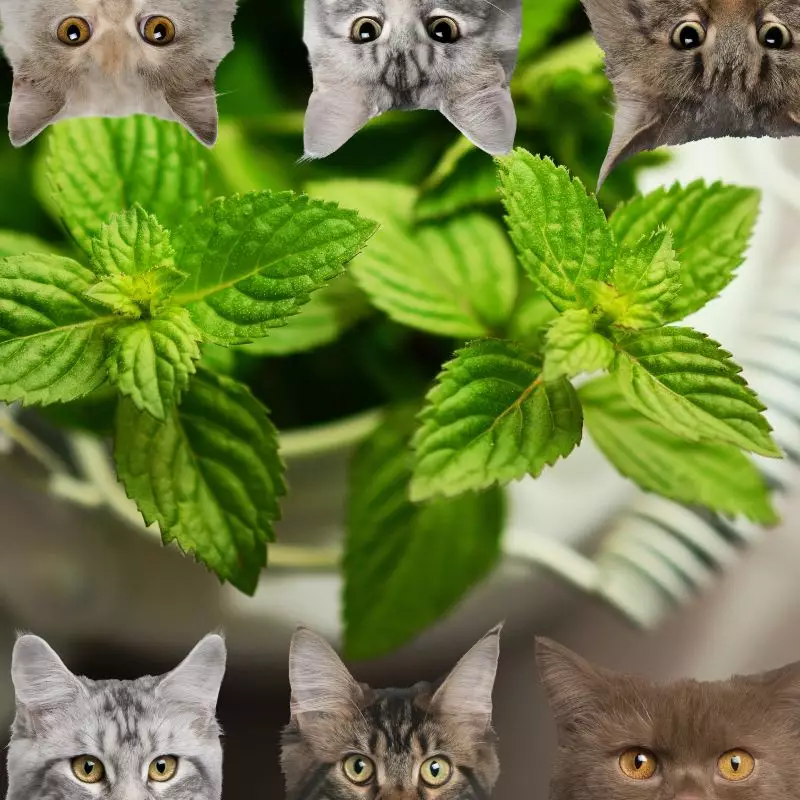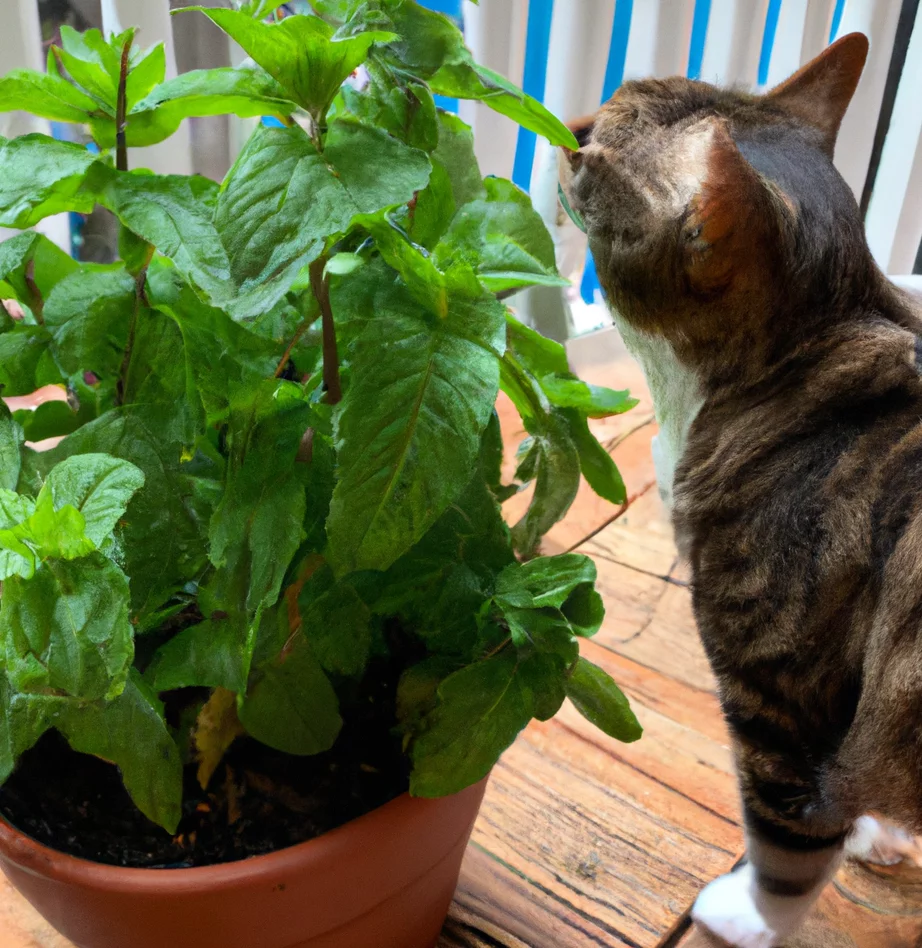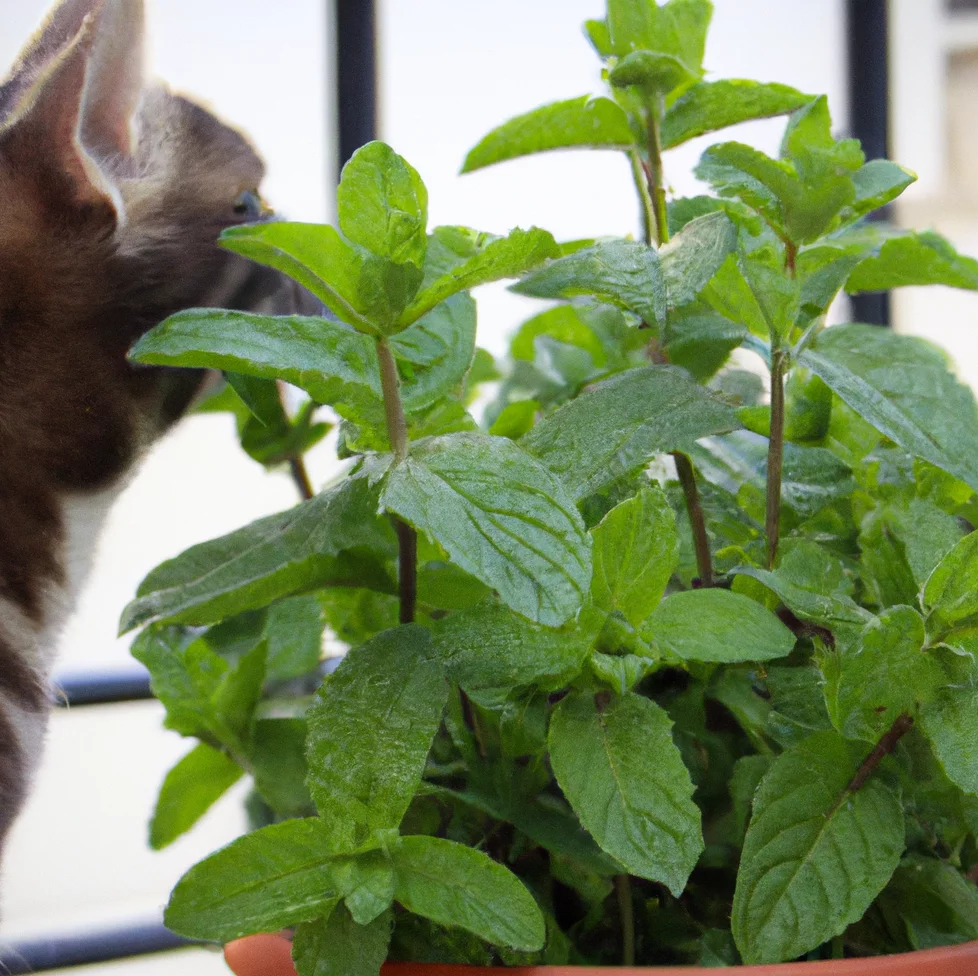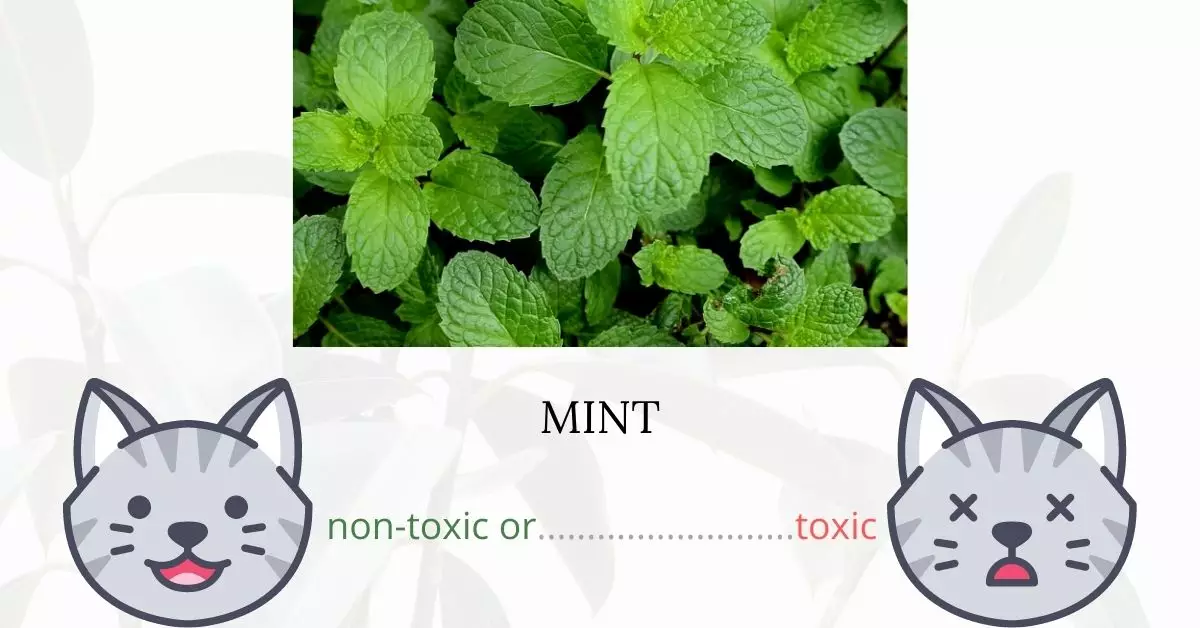Yes, certain species of mint can be toxic to cats. While catnip and catmint are generally safe for cats to consume, other mint varieties contain essential oils that, if ingested in large quantities, can lead to severe reactions in our feline friends. In particular, mint essential oils have been shown to relax the esophageal valve, increasing the likelihood of vomiting, especially in an already unwell cat. Some mints, such as pennyroyal, can lead to dire consequences including liver failure. Cats with a history of liver, digestive, or gastrointestinal issues are at a heightened risk for complications from mint ingestion. Additionally, mint can cause skin irritation in hypersensitive cats.
This article is the result of a collaborative effort with a team of experienced DVMs (doctors of veterinary medicine). Their insights and contributions ensure the provision of accurate and current information on the potential risks of various plants, in this case, mint, and their impact on cats. To further enhance the credibility of our research, we have also consulted high-authority sources such as the ASPCA and PetMD to provide comprehensive insights on the topic.
Clinical Signs of Mint Poisoning in Cats

When cats come into contact with or ingest certain species of mint, it can lead to various clinical symptoms. Each symptom results from the body’s reaction to compounds found in the mint, particularly the essential oils that can irritate the gastrointestinal system of the cat. Here’s a breakdown of the clinical signs and their underlying causes:
- Nausea: This occurs as an immediate reaction to the ingestion of the mint. The cat’s digestive system recognizes the essential oils as potential irritants, and the stomach tries to expel the harmful substances, leading to a feeling of nausea.
- Vomiting: A step beyond nausea, vomiting is a more direct response to mint ingestion, especially if consumed in large quantities. The body attempts to rid itself of the mint’s essential oils which have been shown to relax the esophageal valve, increasing the likelihood of regurgitation.
- Diarrhea: The irritants in the mint can cause an upset in the cat’s intestinal tract. As a result, the body tries to expel these irritants as quickly as possible, leading to diarrhea. This is the body’s way of fast-tracking the removal of harmful substances.
- Weakness: The cat’s body, while trying to combat the toxins present in some varieties of mint, expends a lot of energy. This, combined with potential dehydration from vomiting and diarrhea, can lead to general weakness or lethargy.
It’s essential to note that while many types of mint may only cause mild gastrointestinal discomfort, some, like pennyroyal, can lead to more serious complications. As always, if you suspect your cat has ingested a potentially harmful substance, consult a veterinarian immediately.
First Aid and Treatment of Mint Poisoning in Cats

Unless the cat has a pre-existing health concern or has a strong reaction, most cases of disease caused by mint intake will not require treatment.
The typical treatment for plant poisoning will most likely include vomit-inducing or gastric lavage which will eliminate all plant material from the stomach before it can be fully digested and the toxins are absorbed by the body. Intravenous fluid therapy to rehydrate and balance electrolytes in the cat’s body. Medications such as anti-nausea and antacids may also be prescribed by the vet as needed.
Recovery from Mint Poisoning in Cats

Most cats will recover completely after an episode of mint poisoning. However, in instances wherein a cat’s liver has been damaged, it may experience long-term health problems. Discuss post-treatment care with your veterinarian and help your cats to fully recuperate at home by letting them rest as much as possible.
Prevention of Mint Poisoning in Cats
Cat owners should remember that any mint essential oils should never be given to cats as a remedy since they are simply too volatile. To avoid your cat ingesting any potted mint plants, keep them out of reach or it is better if you can avoid growing them in your home. It’s also best to keep your cat indoors to keep it safe from any harmful plants located in nearby gardens and other areas.
If you love plants but have cats at home, check out these lists:





